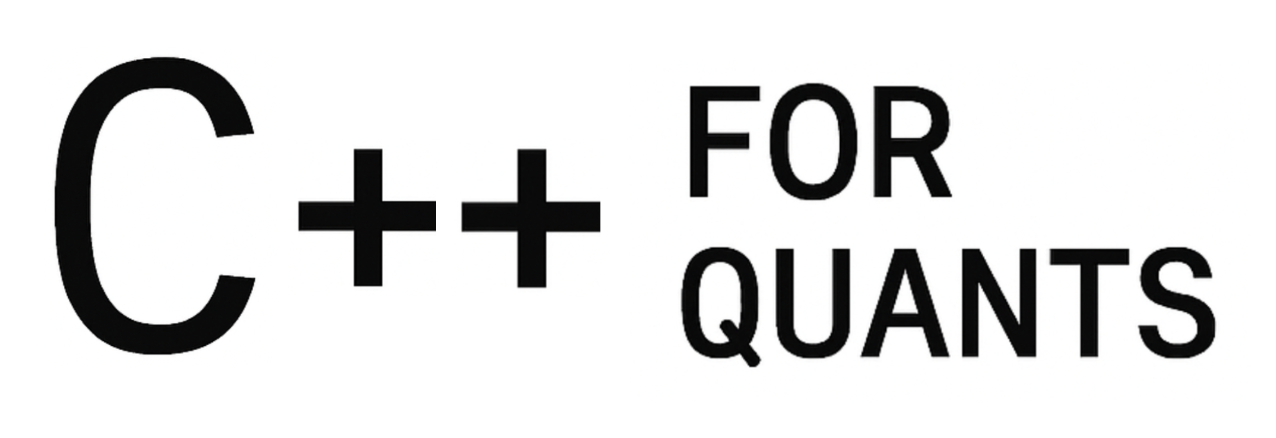C++ is still the backbone of quantitative finance, powering pricing, risk, and trading systems where performance matters most. The upcoming C++26 standard is set to introduce features that go beyond incremental improvements.
Key additions like contracts, pattern matching, executors, and reflection will directly impact how quants build robust, high-performance applications. For finance, that means cleaner code, stronger validation, and better concurrency control without sacrificing speed. This article highlights what’s coming in C++26 and why it matters for high-performance finance.
1. Contracts
Contracts in C++26 bring native support for specifying preconditions and postconditions directly in the code. For quantitative finance, this means you can enforce invariants in critical libraries — for example, checking that discount factors are positive, or that volatility inputs are within expected ranges. Instead of relying on ad-hoc assert statements or custom validation layers, contracts give a standard, compiler-supported mechanism to make assumptions explicit. This improves reliability, reduces debugging time, and makes financial codebases more transparent to both developers and reviewers.
double black_scholes_price(double S, double K, double sigma, double r, double T)
[[expects: S > 0 && K > 0 && sigma > 0 && T > 0]]
[[ensures: return_value >= 0]]
{
}
Preconditions ([[expects: ...]]) ensure inputs like spot price S, strike K, and volatility sigma are valid.
Postcondition ([[ensures: ...]]) guarantees the returned option price is non-negative.
2. Pattern Matching
Pattern Matching is one of the most anticipated features in C++26. It provides a concise way to handle structured branching, similar to match in Rust or switch in functional languages. For quants, this reduces boilerplate in pricing logic, payoff evaluation, and instrument classification. Currently, handling multiple instrument types often requires long chains of if-else statements. Alternatively, developers rely on the visitor pattern, which adds indirection and complexity. Pattern matching simplifies this into a single, readable construct.
auto payoff = match(option) {
Case(Call{.strike = k, .spot = s}) => std::max(s - k, 0.0),
Case(Put{.strike = k, .spot = s}) => std::max(k - s, 0.0),
Case(_) => 0.0 // fallback
};This shows how a quant dev could express payoff rules directly, without long if-else chains or visitors.
3. Executors
Executors (std::execution) standardize async and parallel composition in C++26. They’re based on the Senders/Receivers model (P2300) that reached the C++26 working draft/feature freeze. Goal: make scheduling, chaining, and coordinating work composable and predictable. For quants, this means clearer pipelines for pricing, risk, and market-data jobs. You compose tasks with algorithms like then, when_all, let_value, transfer. Executors decouple what you do from where/how it runs (CPU threads, pools, IO).
// Price two legs in parallel, then aggregate — composable with std::execution
#include <execution> // or <stdexec/execution.hpp> in PoC libs
using namespace std::execution;
auto price_leg1 = then(just(leg1_inputs), price_leg);
auto price_leg2 = then(just(leg2_inputs), price_leg);
// Fan-out -> fan-in
auto total_price =
when_all(price_leg1, price_leg2)
| then([](auto p1, auto p2) { return aggregate(p1, p2); });
// Run on a specific scheduler (e.g., thread pool) and wait for result
auto sched = /* obtain scheduler from your thread pool */;
auto result = sync_wait( transfer(total_price, sched) ).value();
4. Reflection
Reflection is about letting programs inspect their own structure at compile time. In C++26, the committee is moving toward standardized reflection facilities. The goal is to replace brittle macros and template tricks with a clean interface.
For quants, this means easier handling of large, schema-heavy systems. Think of trade objects with dozens of fields that must be serialized, logged, or validated. Currently, you often duplicate field definitions across code, serializers, and database layers.
struct Trade {
int id;
double notional;
std::string counterparty;
};
// Hypothetical reflection API (syntax under discussion)
for (auto member : reflect(Trade)) {
std::cout << member.name() << " = "
<< member.get(trade_instance) << "\n";
}
This shows how reflection could automatically enumerate fields for logging, avoiding manual duplication of serialization logic.


